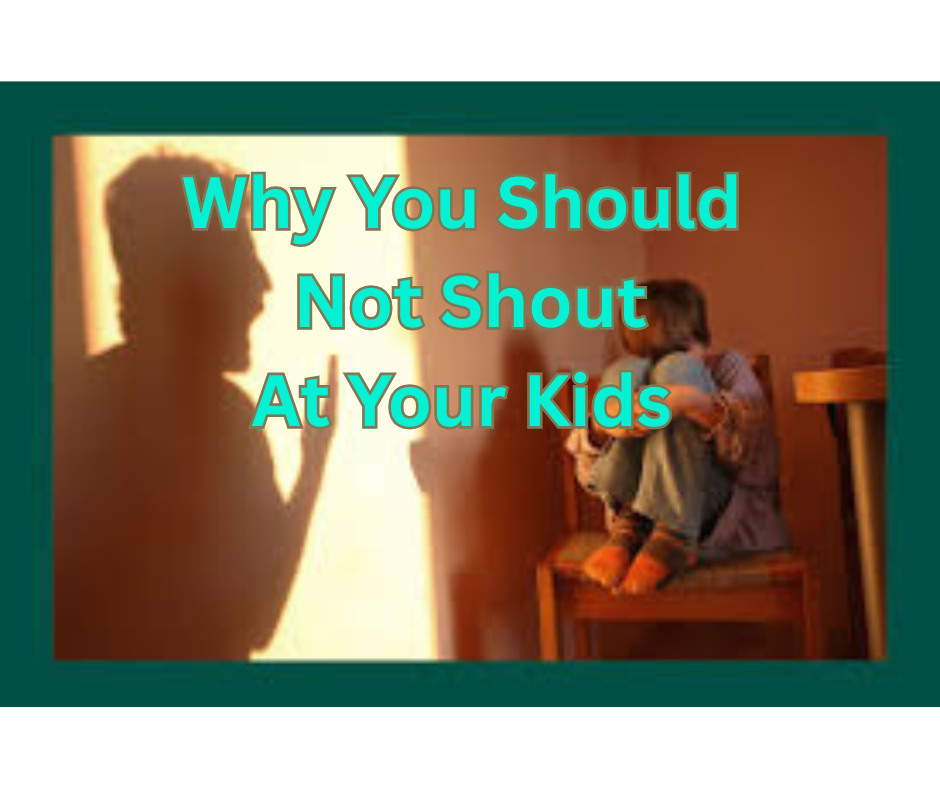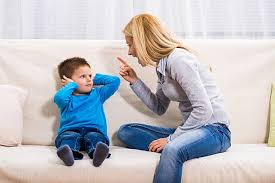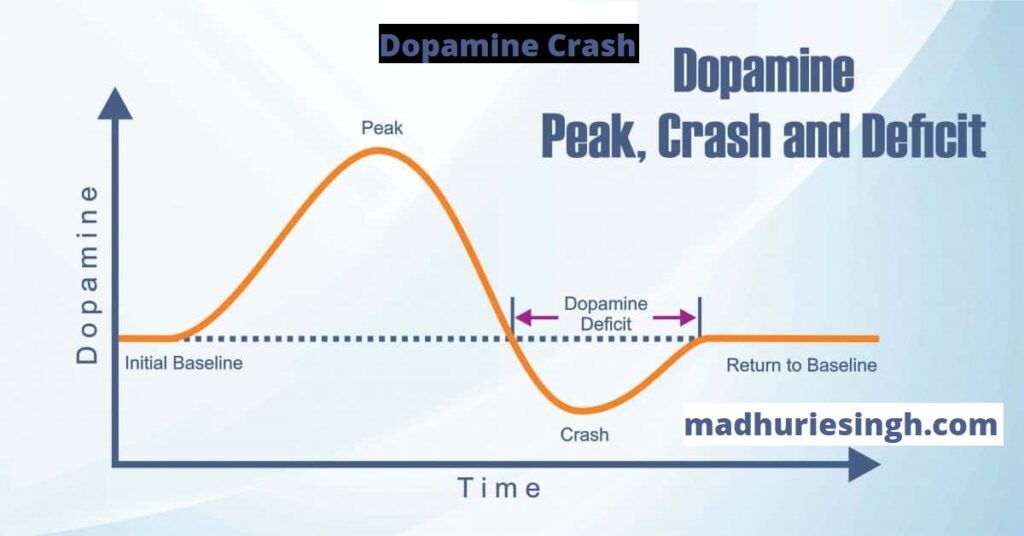Why Scolding Doesn’t Work with a Screen Addicted Child?
By Madhurie Singh, July 03, 2025

Ever yelled, “Put that phone down!” and your child just stared back—or worse, snapped back? You’re not alone. Scolding a child hooked to screens can feel like the only option… but it almost never works. This chapter shares a story every Indian parent will relate to, explores what really happens in the child’s mind, and shows you science-backed ways to guide your child without guilt or yelling. And why scolding doesn’t work with a screen addicted child.
🏠 A Story Every Indian Parent Will Relate To
It was a Sunday evening at home. The pressure cooker whistled loudly, and the house buzzed with chaos. Irene was juggling dinner, the laundry, and her own mobile phone notifications.
Meanwhile, her younger son was glued to the iPad, watching the same cartoon reel over and over again. She told him “only 15 minutes” over an hour ago.
She shouted from the kitchen, “Enough now! Give it to me!”
He didn’t budge.
She stormed over, grabbed the iPad, and he burst into tears. She shouted at him. He yelled back louder.
Later that night, Irene felt guilty. She didn’t want to yell. She didn’t want to feel like the “bad cop” every single day. But she didn’t know what else to do. He husband was not cooperative and would participate against her most of the time. Making disciplining her son a nightmare.
Audio Overview of Why Scolding Your Children Does Not Work?
👩👦👦 Why You Scold Your Children? (from the Parents’ Side)
1. You’re Overwhelmed
Screens feel like a constant battle—and sometimes, you scold just to make it stop.
You’re tired. You’ve tried explaining. You need peace.
But scolding is a reaction from burnout, not a teaching strategy.
2. You Feel Helpless
When your child is glued to a screen and doesn’t respond, it can trigger panic:
- “Am I losing control?”
- “Is my child addicted already?”
So you raise your voice, thinking more volume will lead to more respect.
3. You Think It Works—Temporarily
Yes, scolding may stop the behaviour in that moment.
But long-term? It disconnects you from your child. It builds resistance.
Especially with screen addiction, fear never breaks the loop—it deepens it.

👶 Why Scolding Doesn’t Work (From Your Child’s Side)
1. Screen Time Feels Safe
For your child, screen time is a comfort zone. It’s predictable and rewarding.
When you raise your voice, they lose that control and often react with:
- Meltdown (“You never let me enjoy anything!”), which mostly small children will say.
- Shut down (“Whatever. I don’t care.”) This is a typical reaction of a teenager.
2. They Can’t “Hear You” Through Dopamine
Screens flood your child’s brain with dopamine, the chemical of pleasure.
Yelling at that moment is like snatching away chocolate mid-bite! Imagine it.
Your child isn’t ignoring you; they’re chemically overwhelmed.
3. It Teaches the Wrong Lessons
Scolding teaches them that:
- Loudness equals power. If you shout, you show your power over others, especially weaker, younger or lower in status.
- Love is conditional; if you obey your parents, you will be loved!
- Disobedience equals punishment. If you do not obey, then you will be punished; there is no middle path of understanding.
It doesn’t teach time limits, self-control, or how to handle boredom.
🧠 The Brain Science: What’s Really Going On Inside The Child’s Brain
🧪 1. Fight or Flight Brain Mode
When you scold your child, their brain releases cortisol, the stress hormone.
This shuts down the prefrontal cortex, the part that manages logic and memory.
So they can’t hear your point. They only feel your anger. If you recall, in our Sanatana Dharma we have a saying that
क्रोधाद्भवति सम्मोहः सम्मोहात्स्मृतिविभ्रमः।
स्मृतिभ्रंशाद् बुद्धिनाशो बुद्धिनाशात्प्रणश्यति॥
Meaning:
From anger comes confusion, from confusion loss of memory, from memory loss comes destruction of reason, and from that, one perishes.
👉 Parenting Insight: Shouting in anger clouds judgment — it harms you and the child.
Harvard research shows that high stress during childhood weakens emotional regulation and memory formation.
🧪 2. Shame Hurts More Than It Teaches
According to Dr. Brené Brown, shame makes kids withdraw or lie, not grow.
The more shame your child feels, the more they’ll cling to screen time for emotional escape.
“Do Not Humiliate While Teaching” (Vidura Nīti, Mahābhārata)
Sanskrit:
न हीनं शिक्षयेन्नित्यं न च दोषं प्रकाशयेत्।
गूहेत्प्रकुर्यात्संस्कारं स्नेहेन न तु तर्जया॥
Transliteration:
na hīnaṁ śikṣayen nityaṁ na ca doṣaṁ prakāśayet
gūhet prakuryāt saṁskāraṁ snehena na tu tarjayā
Meaning:
Never constantly teach by pointing out a child’s weakness. Never expose their flaws in public. Teach gently, in private, with affection, not threats.
👉 Insight: Shame breaks confidence. Respect preserves it.
🧪 3. A Screen-Addicted Brain is Already Imbalanced
Dr. Anna Lembke’s research on digital addiction proves:
“A screen addicted brains need more stimulation to feel good—and the brain feels worse during withdrawal of screen time.”
So even mild scolding feels 10x more intense to your child.
The Science Behind Why The Brain Feels Worse During Withdrawal From Screen Time
🧠 What Happens in a Screen-Addicted Brain?
When your child (or even you) watches YouTube, scrolls Instagram, or plays video games, the brain releases a chemical called dopamine. This is the “feel-good” chemical. It’s released in the brain’s reward centre, making the activity feel exciting, fun, and rewarding.
🌟 But here’s the catch:
The more often the brain receives a significant dopamine hit (from short videos, flashy apps, or rewards in games), the more it starts to expect that kind of stimulation just to feel okay.
This is called dopamine desensitisation.
Over Time: The Brain Adapts
- The brain reduces natural dopamine production or weakens dopamine receptors. Like its become tired of constant nagging. 🙂
- What used to feel fun now feels “normal,” and normal life (like playing outside or reading) starts to feel boring.
- This is why screen-addicted kids say things like:
- “I’m bored.”
- “Nothing’s fun anymore.”
- “Can I watch something?”
Why Withdrawal Feels Worse
When you take away the screen, the brain doesn’t immediately return to normal. Instead:
- Dopamine levels crash below baseline.
- The child feels low, irritable, moody, or even angry.
- This is not defiance—this is a brain in withdrawal, similar (but milder) to sugar or even drug withdrawal symptoms.
The Cycle

- The child watches a screen → dopamine spike
- Repeated use → the brain adapts
- Screens removed → dopamine crash
- Child demands the screen again to feel “normal”
And the cycle repeats—unless you break it gently.
🧘♀️ Final Thoughts — From Me to You
Scolding might bring short-term silence. But it often leads to long-term distance.
You’re not a bad parent. You’re a human one—navigating a digital world where love often looks like yelling.
But love can also look like breathing, asking, waiting.
You don’t need to be perfect.
You just need to stay connected—even when it’s hard.
🛠️ What Can Indian Parents Do?
Join The Trusted Parents Whatsapp Group Here
Fill The Google Form To Connect With Madhurie Singh or Join the Trusted Parents Circle
Join The Screen De-Addiction Course Here
✍️ About the Author
Madhurie Singh is India’s leading education and parenting expert, a school reviewer, computer engineer, Sanskrit scholar, and founder of Trusted Parents. Through ancient wisdom and modern science, she helps parents raise mindful, values-driven children in a digital-first world.






Login is required
Don't have an account? Sign Up